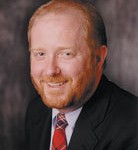 And the Pharisees and the scribes asked him, “Why do your disciples not walk according to the tradition of the elders, but eat with defiled hands?” And he said to them, “Well did Isaiah prophesy of you hypocrites, as it is written, “‘This people honors me with their lips, but their heart is far from me; in vain do they worship me, teaching as doctrines the commandments of men.’ You leave the commandment of God and hold to the tradition of men.” Mark 7:5-8
And the Pharisees and the scribes asked him, “Why do your disciples not walk according to the tradition of the elders, but eat with defiled hands?” And he said to them, “Well did Isaiah prophesy of you hypocrites, as it is written, “‘This people honors me with their lips, but their heart is far from me; in vain do they worship me, teaching as doctrines the commandments of men.’ You leave the commandment of God and hold to the tradition of men.” Mark 7:5-8
Scotty Smith writes out a prayer – one that I am praying myself:
“Dear Jesus, we tremble at the thought of you speaking these words to us. What could be more sobering and painful than to hear you say, “You talk about me a lot—using multiple Scriptures and well crafted theological language. You’re quick to recognize and correct false teaching, and you’re quite zealous to apply what you know to others. But your heart is far from me.”
It would be one thing to garner such a rebuke for mimicking the worse Pharisees and the Galatian Judaizers (Gal. 2:11-21)—putting people under the yoke of performance-based spirituality, and failing to acknowledge your work as the sole and sufficient basis for our salvation. But it would be an altogether different thing to be chided for being a gospel snob and scribe. Have mercy on us, Jesus, have mercy on me.
Forgive us when our love for the truth of the gospel and the doctrines of grace is more obvious than our love for you… as impossible as that may seem.
Forgive us when we enjoy exposing legalistic, pragmatic and moralistic teaching more than we crave spending time with you in fellowship and prayer.
Forgive us when we invest great energy in defending the imputation of your righteousness but have very little concern for the impartation of your transforming life.
Forgive us when we are quick to tell people what obedience is not, but fail to demonstrate what the obedience of faith actually is.
Forgive us when we call ourselves “recovering Pharisees” or “recovering legalists,” but in reality, we’re not really recovering from anything.
Forgive us when talk more about “getting the gospel” than we’re actually “gotten” by the gospel.
Forgive us for being just as arrogant about grace theology as we were obnoxious about legalistic theology.
Forgive us when our multiplied uses of the word “gospel” in our conversations does not translate into multiplied evidences of the power of the gospel in our lives.
Forgive us when we don’t use our gospel freedom to serve one another in love, but rather use it to put our consciences to sleep.
Forgive us for creating gospel-fraternities and gospel-posses which taste to outsiders like ingrown tribes or “clubish” elitism.
Forgive us for having a PhD in the indicatives yet only a kindergarten certificate in the imperatives of the gospel.
Forgive us when our passion for the gospel does not translate into a passion for holiness and world evangelism, and caring for widows and orphans.
Lord Jesus, with convicted and humbled hearts, we ask you to change us, by your grace and for your glory. So very Amen, we pray, in your magnificent and merciful name.”

 WARNING: Powerful, potent, hypocrisy crushing, non-politically correct insight from the pen (or keyboard) of
WARNING: Powerful, potent, hypocrisy crushing, non-politically correct insight from the pen (or keyboard) of  Those who object to the accuracy of the man’s profession then had better embrace a more robust ecclesiology than we are used to in our day. Without a body of elders who know you, who are in authority over you, how is your profession any better than this man’s? The loosey-goosey I-have-a-love-for-Jesus-in-my-heart, why should I need to join a church is a-historical, unbiblical and rebellious. If you cannot name the elders who will have to give answer for your soul (see Hebrews 13:17 and I Peter 5:7) then why would anyone feel compelled to accept your profession? Is a “Christian” who will accept no authority, in principle, any worse than a “Christian” who commits mass murder?
Those who object to the accuracy of the man’s profession then had better embrace a more robust ecclesiology than we are used to in our day. Without a body of elders who know you, who are in authority over you, how is your profession any better than this man’s? The loosey-goosey I-have-a-love-for-Jesus-in-my-heart, why should I need to join a church is a-historical, unbiblical and rebellious. If you cannot name the elders who will have to give answer for your soul (see Hebrews 13:17 and I Peter 5:7) then why would anyone feel compelled to accept your profession? Is a “Christian” who will accept no authority, in principle, any worse than a “Christian” who commits mass murder?